
Tips for Parent-Caregiver Communication
Strategies for open communication about children’s development.
As parents and caregivers, you are part of a childcare team to raise kids in safe spaces with lots of love and care—and teams work best with great communication. Being open and honest about children’s development and needs is what is best for little ones. Here are some tips to make these conversations easier:
- Little ones listen. Choose a time and place where you can talk alone, away from a child’s ears.
- Be aware of your feelings. Take a minute to be aware of your feelings. If you’re feeling stressed, angry, or overwhelmed, it may be better to have the conversation at a time when you’re calmer.
- Share the positive. Share something that you feel the parent/caregiver/child is doing well. When positive things are shared regularly, it can help put difficult conversations in perspective.
- Take your time. Schedule enough time to talk so that no one feels rushed, or that they didn’t have the opportunity to share their thoughts and feelings.
- Create a judgment-free zone. Parenting and caregiving styles can be very personal. There may be some differences in styles between parents and caregivers, but the goal is to share thoughts and philosophies, and do what is best for the child.
- Use examples. Instead of making general statements (“You don’t help James with his separation anxiety”), support with examples: “I noticed that James was upset when I was getting ready to leave him the other day. I’m concerned that’s happening often.”
- Brainstorm solutions. Rather than leave it to one person to come up with a solution to the problem, brainstorm solutions together: “I’m concerned about how upset James gets when I leave him. Maybe it would help if you got him started on an activity right away to distract him. What else do you think might help? Is there anything I can do?”

Communicating with Parents and Caregivers Around Routines
An article offering strategies for communication with parents/caregivers.
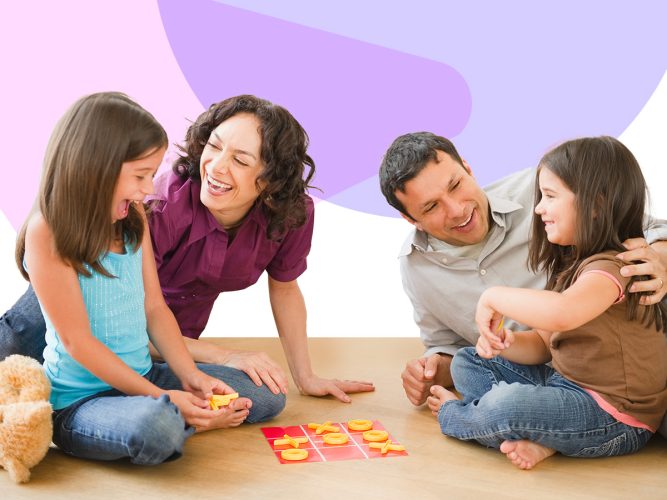
Shaping an Engaging Learning Environment
Your space is full of opportunities for children to learn and grow!

Planning Our Days: Creating Schedules for Children
Planning ahead can help you be intentional about the learning of the children in your care!
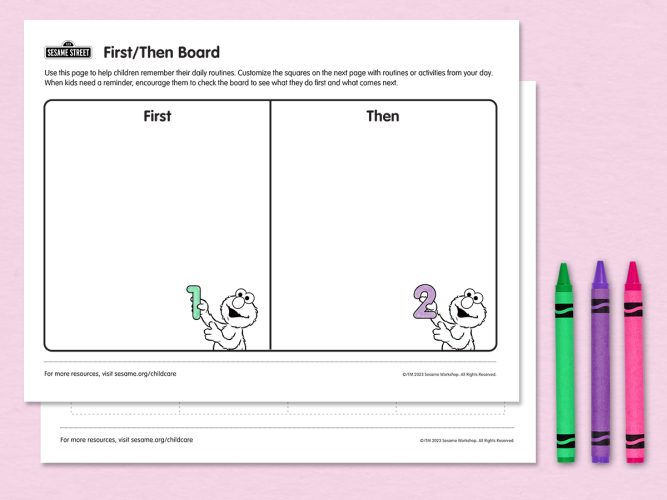
“First/Then” Boards: Managing Daily Routines
A printable tool to help children know what to expect in their daily routines and activities.
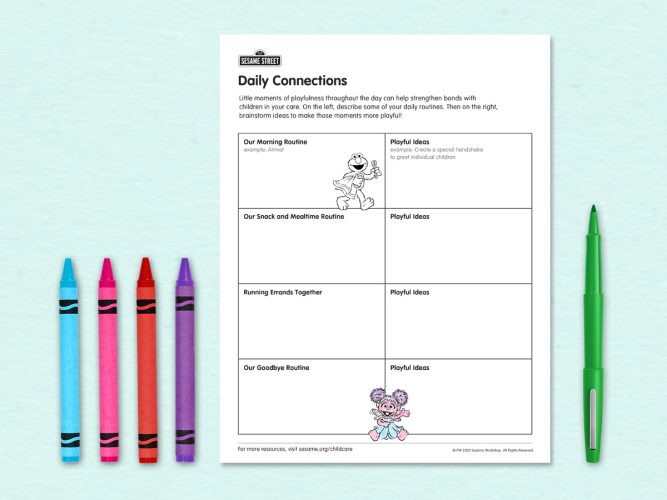
Planning for Play in Daily Routines
A printable page to plan moments of playfulness during daily routines.
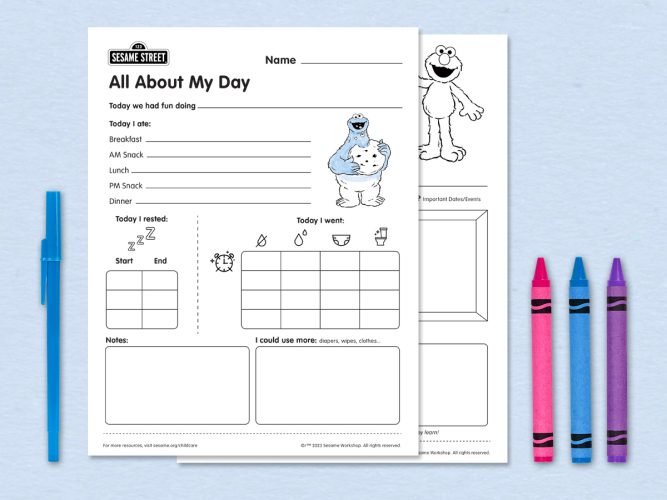
Provider-Parent Communications Log
A printable page to help parents and caregivers communicate about a child’s day.
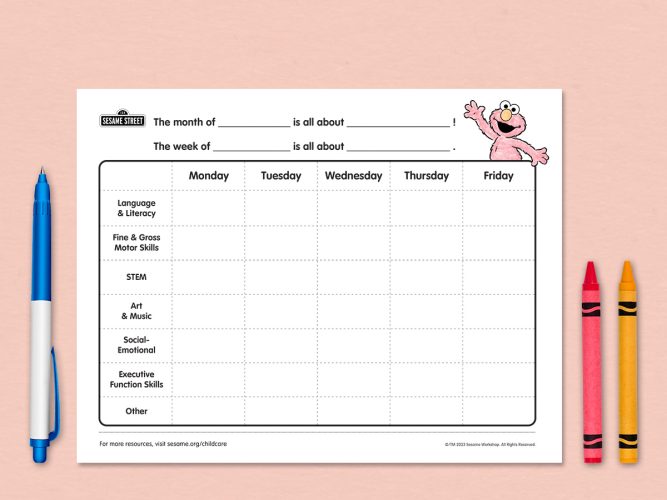
Lesson Planning Practice
A tool to plan opportunities for learning connected to monthly and weekly themes.
